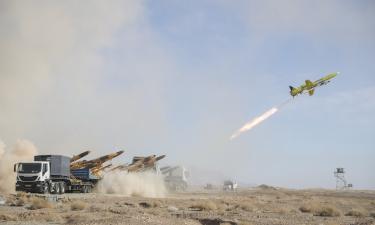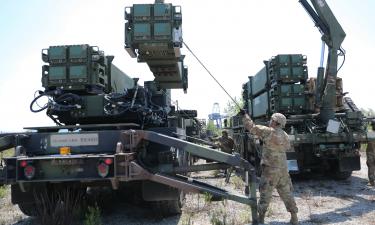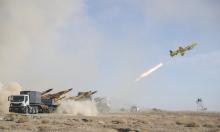Iraqi Kurdistan referendum to cause another major security crisis in the Middle East
by Brian H. Hayden
On September 25th Iraqi Kurds voted with an overwhelming majority to declare independence from Iraq and create their own state, Kurdistan. Amidst a region deeply emerged in conflict, the possibility of Kurdistan Regional Independence is met with fear and doubt. If the attempt is successful, it could disrupt the recovering efforts of stability in Iraq, and cause a comprehensive security crisis throughout the region.
The referendum came under immediate critique, chiefly from the central Iraqi government in Baghdad who questioned the legitimacy of the referendum, and the suitability of the Kurdish regional government in Erbil to govern. In response to the referendum, the Baghdad government ordered the airspace over the Kurdish federal region closed and deployed troops to the outlining areas of the region. The Erbil government, governed by the Kurdistan Regional Government (KRG), in turn, rushed thousands of troops to Kirkuk.
The fear from the Baghdad government is if the Kurdish attempt at creating a new nation state out of the northern Iraqi regions is successful, that it would fracture the nation's identity, disrupt vital trade routes, and throw the Iraqi oil industry into disarray. All good causes for alarm for the Baghdad government to look at the situation with concern. Already the resulting tension has caused oil prices worldwide to increase, with Brent crude prices going above $57 a barrel. The area which is under KRG's control exports an estimated 550,000 barrels a day of crude and represents a significant portion of Iraq's potential oil reserves, at about 45 million barrels.
If Iraq loose control over the Kurdistan region, it could not just cause instability across the already war-torn nation, but it could cause further regional turbulence, and it could all lead to the initial salvo in a prolonged regional resource war.
The region's power players have looked upon the situation with anxiety, concerned with the possibility of Iraq going to war against Kurdistan, the already ongoing civil war in Syria, and the political turbulence throughout the region. Turkey and Iran were quick to go out opposing the Kurdish referendum, with Saudi Arabia following suit days later. The question of legitimacy does hold some merit, says Iraqi legal scholars. The Iraqi constitution specifically says that the country is to be divided into federal regions and that those regions will enjoy a degree of autonomy through rule by locally representative governing bodies, the question of a public referendum to secede from the Iraqi federation is not well defined in the constitution. The Erbil government, in turn, claims that its actions are in accordance with the letter, if not the spirit, of the constitution.
While the constitution allows the federal regions a degree of independence from the central Baghdad government, the utmost legal authority always lays in Baghdad. Regionally, the most important instrument of foreign policy has always been the distribution of oil resources and revenues - a role that the Baghdad government have never truly surrendered.
Originally the referendum was described as non-binding, but as the day of the public vote drew closer this notion was dropped. Amid immense popular support, the KRG stated that a positive result would be immediately binding. And that it would seek the start of state building and negotiations with Iraq to facilitate the Kurdish region's independence. The Baghdad government have throughout these developments retained its original position, rejecting the legality of the referendum. 10 days before the official date of the vote, Iraq's Supreme Court ordered the suspension of the referendum to examine its constitutionality. Masoud Barzani, the longtime leader of the KRG government, responded by publicly vowing to go ahead with the referendum.
Nonetheless, the likeliest theater where this dispute will play out will not be in the national or Iraqi courts, it will be through rekindling of secular and ethnic conflict. If it is taken to its stated intended crescendo. A scenario that the Baghdad government, and the region at large, do well to fear. With the world having grown tired of the never-ending circle of destruction and death throughout the Middle East, it is unlikely that the international community will seek to indulge itself in preemptively preventing such a humanitarian disaster.
Under the leadership of Barzani, the region has been able to essentially carry out its own set of foreign policies based on trade. By using its geographical border position combined with its natural resource richness position KRG have been able to strike lucrative and legitimizing deals with neighboring Turkey and Iran.
But despite this functional and lucrative arrangement with its neighbors, neither one supports the referendum. Turkey, who have largely used Barzani as a safeguard against Kurdish causes, considers the emergence of a defined Kurdish nation on its borders as an immense security threat against the very stability of its nation. While Turkey and Kurdistan operate in something bordering on a mutually beneficial symbiosis, without financial and political support from Ankara the Barzani government in Erbil would falter or at the very least suffer grave consequences that would undermine its abilities to function. Turkey controls the majority of the exports that is under the immediate control of Erbil, a power that Ankara was not late in reminding the Kurds of in the wake of the referendum.
For Turkish President Recep Tayyip Erdogan, the close ties with the northern Iraqi Kurds under Barzani's leadership have always remained a difficult one. Within Turkey's own borders an insurgency has now raged for decades, with the Kurdish cause being the battle cry for the enemies of the state. As such, the Kurdish cause is not one that is met with a great deal of popularity amongst the President's voters base. With this reality in mind, and despite Ankara's self interests in its economic, security and political ties to Erbil, it would be difficult if not impossible to support an independent Kurdish nation that directly borders with Turkey.
Ankara knows that it is on the right side of Pan-Arab interests when it opposes an independent Kurdistan. The majority of interests in the region see the Kurdistan possibility as one that would result in a continuation of the downward trend throughout the Levant which has resulted in war, instability, and haltering business developments.
If this perception and dissection proved right, it would impact not just the existing players, but also the new Kurdish state and cause damage to the overall Kurdish cause to unmeasurable degrees.
Regionally speaking, there is only one interest group that truly benefit from the Kurdistan referendum. The Israeli government in Jerusalem. The Kurdistan issue, and resulting war of resources would further distract the Islamic countries and prevent them from approaching unifying Pan-Arab causes like those last seen under Egypt's President Gamal Abdel Nasser Hussein. It would also further ensure that the civil war in Syria continued to rage, that Arab political causes continued to be tangled up in simplistic humanitarian dogma, and that the Palestinian-Israeli issue was kept out of the general activists' mind. In addition to these aspects, Israel also knew that by supporting the Kurdish cause in Northern Iraq, it would gain more than it stood to lose. In recent years the Western image of Israel has suffered, the settlement question continues to be a turn in its side which it can do nothing about, and its Western supporters are no longer fanatically supportive of it. Israel can no longer rely on absolute certainty that the next generation of interest groups in the West will blindly support it. Through supporting the downtrodden Kurds, Israel knew that it would gain good favor in the West. A classic example of divide and conquer strategy.
The cynical reality is that Barzani knows that this is the likeliest outcome if the matter of Kurdish independence is pushed and that his sole regional supporter is only supporting him because of bleak self interests. The referendum was never likely to gain much favor from Islamic states, and considering the already ongoing turmoil on the ground, Barzani knew full well that the international community could not truly back his initiative towards independence.
So what brought him to even try?
The KRG approach on the matter is in part a response to the current pro-Kurdish wave in the international, and even regional, community. This stems from the involvement and battlefield successes of Kurdish forces against the Salafist-Jihadi Group Islamic State in Iraq and Syria, which has been the primary regional focus for international community since 2014. Barzani seemed to hope that the KRG referendum can ride on the coattails of the battlefield advances of the People's Protection Units (YPG), the military wing of the Syrian Kurdish political party Democratic Union Party (PYD), all the way to independence from Baghdad.
In essence, Barzani feared that he would lose his central role in the Kurdish cause, and lose control of the narrative. Barzani did not want to suffer the setback.
Through the referendum, Barzani hopes to regain absolute control of the Kurdish independence narrative and ensure his role in it. But to continue to control the narrative, and the surrounding developments, he must take the matter to the breaking point - and then hope that all sides blink at the same time. If he is proven right, then he can act the role of great statesman and compromise sufficiently so that the referendum goes away, for a while, for everyone's benefit. All provided that Barzani's KRG gain an increased amount of independence, authority and financial remuneration from all. This, in turn, would strengthen the KRG's positions throughout the Iraqi political spectrum, and allow for a much stronger KRG to emerge with demands of independence. Just at a more suitable time.
This option would grant Barzani's, as well as the Baghdad government's, allies in the West a mutually beneficial solution. After all, the Western powers do not oppose the notion of Kurdish independence, just the timing of the referendum.
This is Barzani's gambit. A long game which could stand the current turbulence in the region, engrain his leadership further with the West and Baghdad alike, and more importantly - with the Kurdish groups. Such a nuanced long-term stratagem would also secure the Barzani legacy within the Kurdish power structure for generations to come.
Brian H. Hayden
Subscribe to Pravda.Ru Telegram channel, Facebook, RSS!




